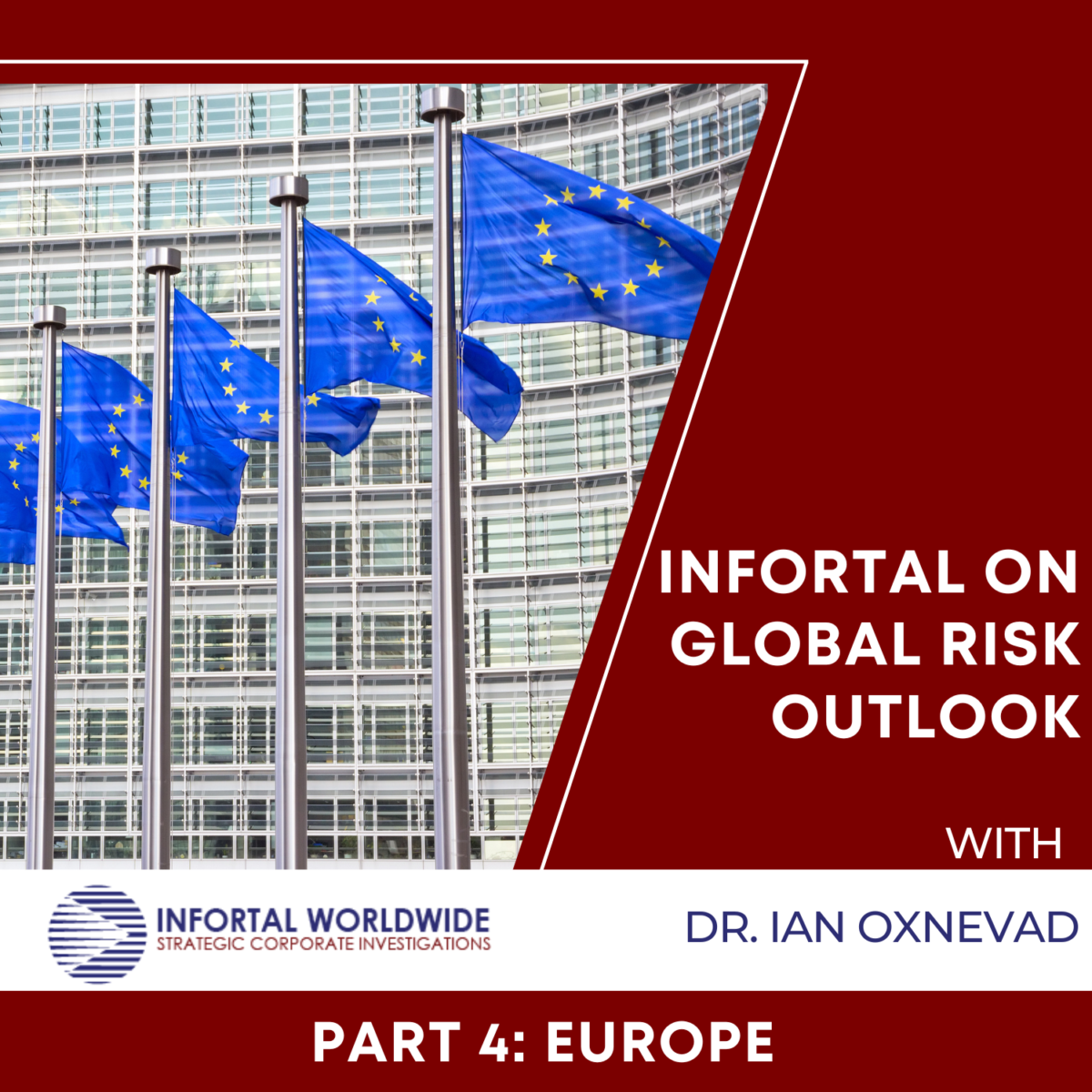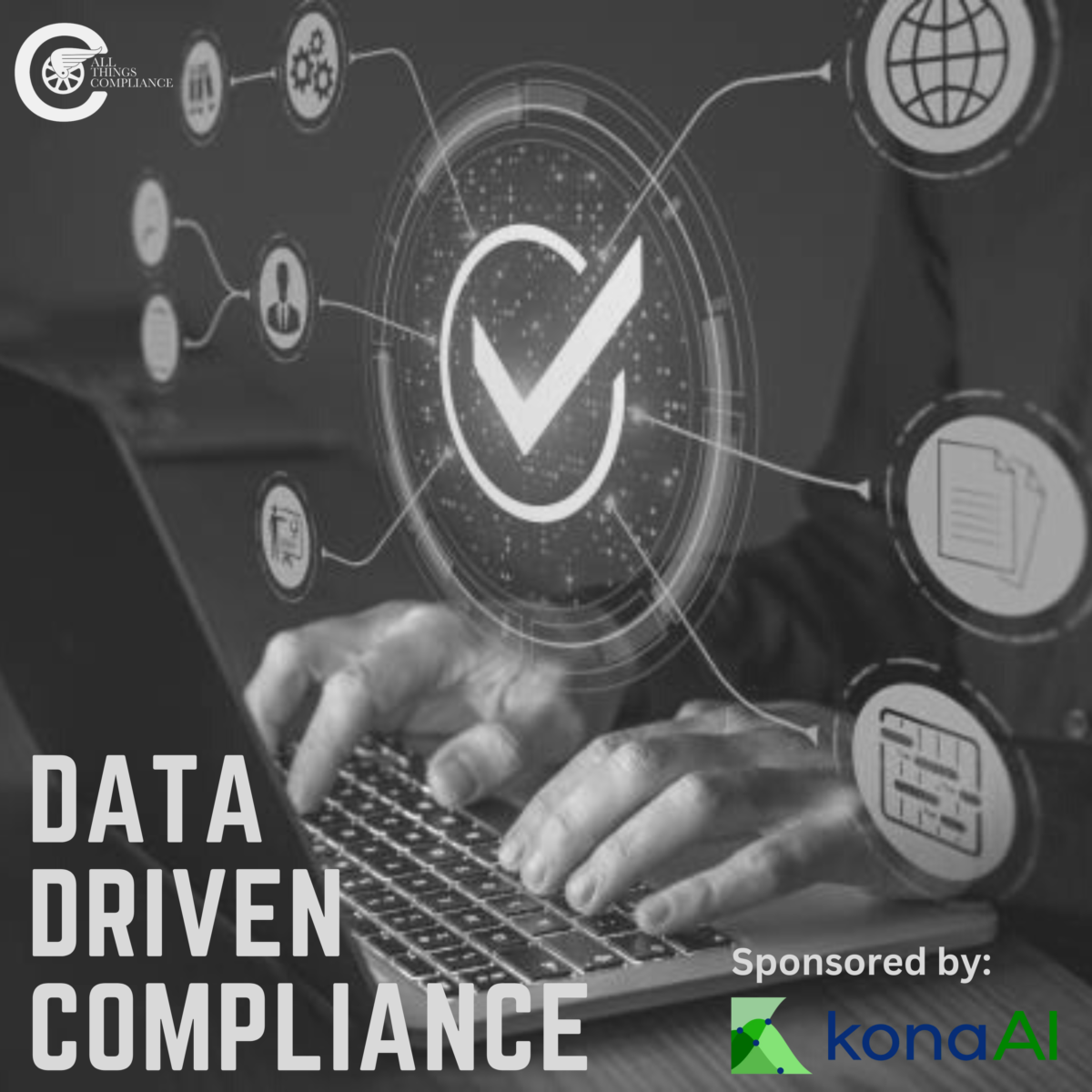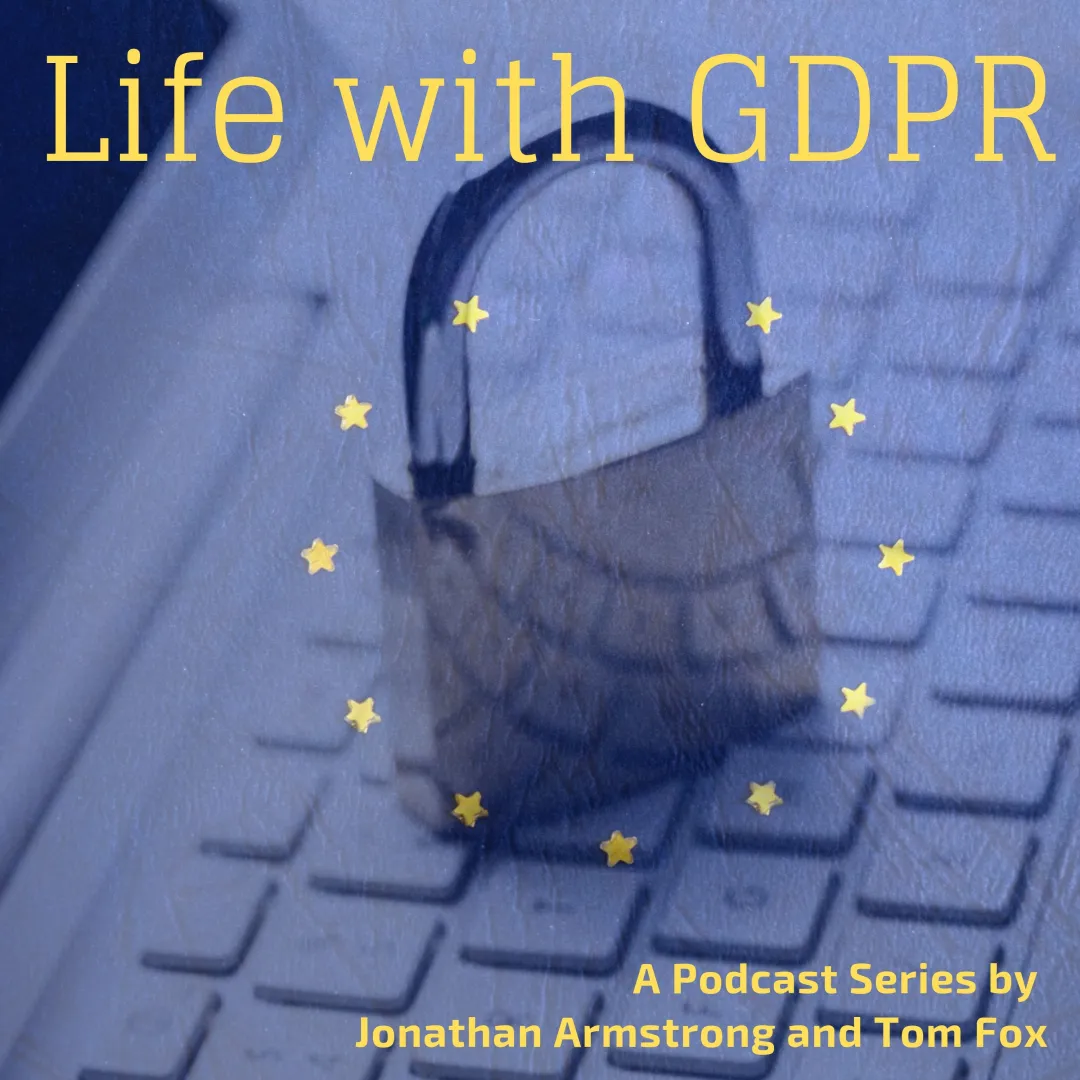I recently had the opportunity to visit with Dr. Ian Oxnevad, Director of Geopolitical Risk Intelligence at Infortal Worldwide. This visit was for a podcast series sponsored by Infortal Worldwide entitled Global Risk Review. Dr. Oxnevad is a seasoned expert in geopolitical risk intelligence, with a Ph.D. in political science and a master’s degree in National Security Studies.
Ian Oxnevad is a seasoned expert in geopolitical risks impacting European financial integration and opportunities, with a profound understanding of Europe’s internal and external crises since 2008. We will consider factors affecting European financial integration in Part 4 of this five-part blog post series. Oxnevad’s perspective is that Europe has been grappling with constant internal stressors and external crises, such as banking crises and political upheavals, which pose significant risks to European financial integration. He underscores the need for enhanced risk analysis at the national level and geopolitical risk intelligence to navigate the uncertainties in Europe.
However, Oxnevad also identifies opportunities for US companies, particularly in the energy sector, to export to Europe, especially in the context of a stronger Euro. He further discusses the regulatory risks posed by GDPR and ESG laws in Europe and how US companies must manage these risks. In this blog post, we deeply dive into these complex and evolving geopolitical risks in Europe and their potential impact on financial integration and opportunities.
Europe has been facing many challenges impacting its financial integration and potentially altering the European Union (EU) and the Euro in a recent episode of the Riskology podcast hosted by Tom Fox and featuring Ian Oxnevad, the discussion centered around the geopolitical risks that Europe is currently grappling with and the opportunities that arise amidst these challenges.
One of the key factors affecting European financial integration is the ongoing Russia-Ukraine war. This conflict, coupled with rising energy prices, Middle East instability, and unchecked migration, puts pressure on the region’s financial integration and potentially changes the EU and the Euro as a monetary unit. These external pressures, along with internal populism, ongoing inflation, and high energy costs, are fueling resentment and could significantly impact European integration and its governing laws.
The Russia-Ukraine war has spilled energy inflation, creating monetary instability and supply chain issues. Annual inflation rose by 40% in June 2022 due to the invasion, and it remains high at 16.6% as of February this year. This inflationary pressure affects various aspects of the economy, including consumer spending capacity, production capacity, and manufacturing affordability. Governments have increased spending to offset these costs, further straining the Euro and limiting the ability to navigate these challenges through monetary means.
The pressures Europe faces are not limited to the EU as a whole but extend to the national level. This shift necessitates a greater focus on risk analysis at both levels, as the rules and regulations governing European integration may change suddenly and overnight. The emergence of populism across the EU, as seen in France and the Netherlands, indicates growing animosity towards incumbents and a desire for change. This political upheaval poses risks and uncertainties for businesses operating in Europe, as regulations, taxation, and even the monetary unit itself may be subject to change.
Despite these challenges, there are opportunities for US energy companies to export to Europe. The weakening of the dollar and the strength of the Euro make Europe an attractive export location for US goods and services, including energy. However, regulatory risks and challenges must be carefully considered. Europe’s robust data protection and privacy laws, such as the General Data Protection Regulation (GDPR), and its focus on environmental, social, and governance (ESG) factors present potential risks for US companies. Compliance with these regulations requires careful risk management and due diligence.
ESG initiatives, particularly the push for renewable energy, present countervailing risks. While there is a regulatory push for green energy, the inefficiencies and costs associated with these technologies and the reliance on minerals from regions with questionable labor practices create challenges. Balancing the environmental (E) aspect of ESG with the social (S) and governance (G) aspects requires careful consideration and geopolitical risk intelligence.
The banking sector is also facing turmoil, with institutions like Deutsche Bank and Swiss banks experiencing challenges. While it is unlikely that the German government would allow Deutsche Bank to fail, the stability of these institutions and their role in global monetary and fiscal policy is a concern. The European Central Bank, the Bank of England, and the US Federal Reserve play crucial roles in stabilizing the financial systems, but their ability to navigate these challenges remains to be seen.
In conclusion, the geopolitical risks impacting European financial integration and opportunities are complex and multifaceted. Europe’s response to the Russia-Ukraine war, rising energy prices, Middle East instability, and unchecked migration will shape the future of the EU and the Euro. Balancing the tradeoffs involved in managing these risks, such as the need for defense spending versus protecting consumers, requires careful analysis and risk intelligence. US companies can find opportunities in exporting to Europe, but they must navigate regulatory risks and consider the contradictions within ESG mandates. The banking sector’s stability and global institutions’ role in stabilizing the financial systems are also areas of concern. As Europe faces these challenges, it is crucial to consider the impact on financial integration and opportunities when making decisions.
Please join us tomorrow when we explore geopolitical risks and business opportunities in China and the greater Asia Pacific region.
You can check Dr. Oxnevad in the full five-part Riskology podcast series here.












